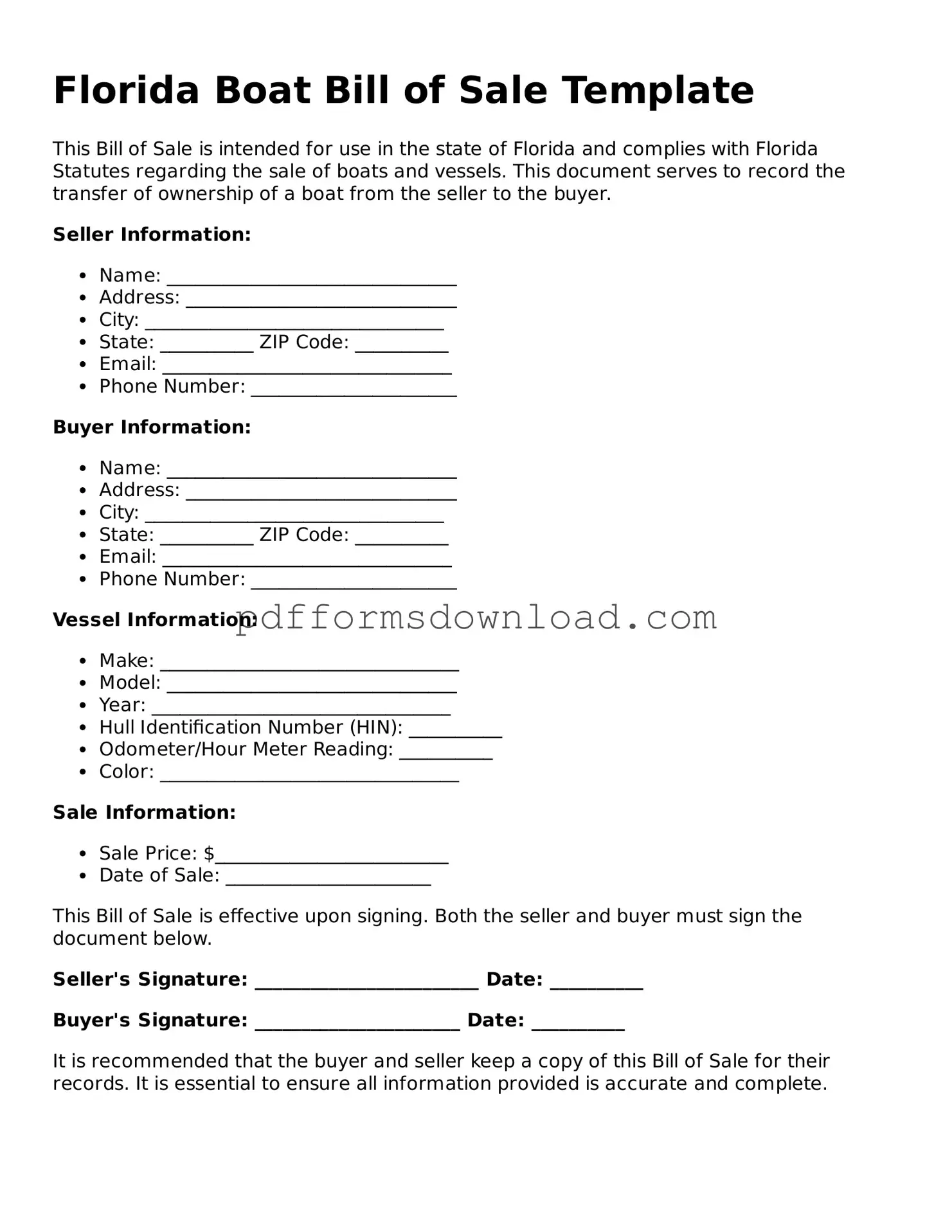What is a Florida Boat Bill of Sale?
A Florida Boat Bill of Sale is a legal document that serves as proof of the sale and purchase of a boat. It outlines the details of the transaction, including the identities of the buyer and seller, the boat's description, and the sale price. This document is essential for transferring ownership and can be used for registration purposes with the Florida Fish and Wildlife Conservation Commission.
Is a Boat Bill of Sale required in Florida?
While a Boat Bill of Sale is not legally required for every transaction, it is highly recommended. This document protects both the buyer and seller by providing a clear record of the sale. Additionally, it is necessary for registering the boat and may be required by insurance companies.
What information should be included in the Bill of Sale?
The Bill of Sale should include the following information: the names and addresses of both the buyer and seller, the boat's make, model, year, and hull identification number (HIN), the sale price, and the date of the transaction. It’s also wise to include any warranties or conditions related to the sale.
Do I need to have the Bill of Sale notarized?
Notarization is not a requirement for a Florida Boat Bill of Sale. However, having it notarized can add an extra layer of security and legitimacy to the document, which may be beneficial if disputes arise in the future.
Can I use a generic Bill of Sale form?
Yes, you can use a generic Bill of Sale form, but it is advisable to use a form specifically designed for boats. This ensures that all necessary information is captured and complies with Florida regulations. Templates are often available online or through local boating organizations.
How does the Bill of Sale affect boat registration?
The Bill of Sale is a crucial document when registering a boat in Florida. It serves as proof of ownership and is required by the Florida Fish and Wildlife Conservation Commission. Without it, the registration process may be delayed or denied.
What if the boat has a lien?
If there is a lien on the boat, it is essential to resolve it before completing the sale. The seller should provide documentation showing that the lien has been satisfied or that the buyer is aware of the lien and agrees to take responsibility for it. The Bill of Sale should also reflect any such conditions.
Can I sell my boat without a Bill of Sale?
Technically, you can sell your boat without a Bill of Sale, but doing so is not advisable. Without this document, there is no official record of the transaction, which can lead to complications regarding ownership and liability. A Bill of Sale protects both parties involved.
What should I do after completing the Bill of Sale?
After completing the Bill of Sale, both the buyer and seller should keep a copy for their records. The buyer should then proceed to register the boat with the Florida Fish and Wildlife Conservation Commission, using the Bill of Sale as proof of ownership. It's also a good idea for the seller to notify their insurance company about the sale.
Where can I find a Florida Boat Bill of Sale template?
Templates for a Florida Boat Bill of Sale can be found online through various legal document websites, boating associations, or local government websites. Make sure to choose a template that complies with Florida's specific requirements to ensure all necessary details are included.

